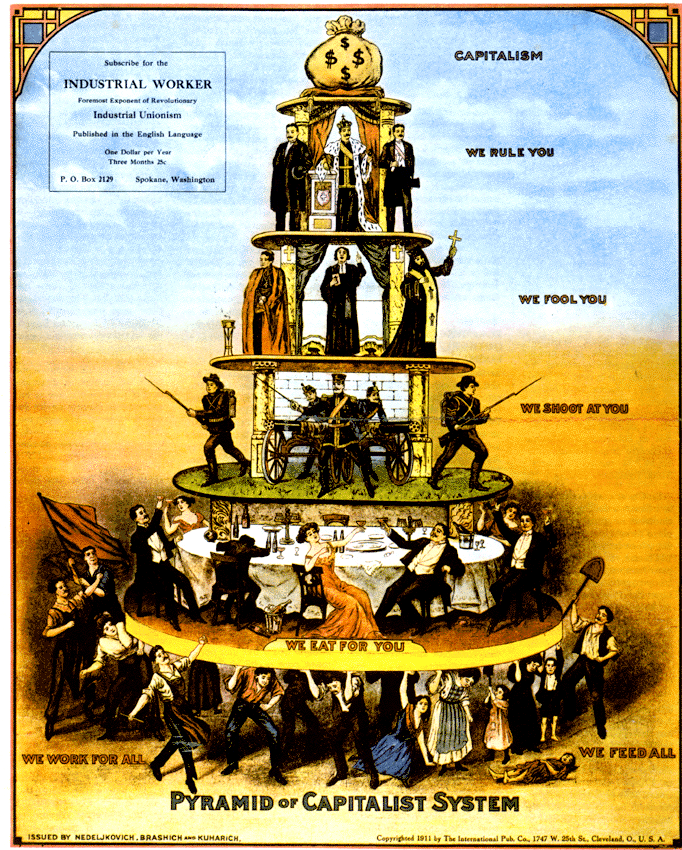For the past three Wednesdays I have listened to one of CBC’s new summer programs, The Invisible Hand, with maddening frustration. The show, hosted by Matthew Lazin-Ryder, is an attempt to explain the economic realities of everyday choices and situations. It is supposed to be a hip, poppy take on the dismal science much akin to National Public Radio’s very much overrated Planet Money.
The result has been an illogical and uncritical take on a potentially interesting subject wrapped in a Malcolm Gladwellesque pseudo-scientific neoliberal facade. Instead of tackling the inner workings of financial capitalism, or how the global economic crisis came about, we are treated to an array of bubblegum justifications for greed, inequality and misery. The show is not only overly simplistic; it is downright dangerous. The first three episodes have covered the field of despicable neoclassical economic tropes from “greed is good” to “price gouging is noble.” The show bills itself as an exploration of the economics of everyday life but the result is nothing short of brazen right-wing propaganda.
In episode three, we are treated to the familiar, if not tired, idea that the high drug prices charged by pharmaceutical companies for drugs that cost pennies to make are justified. The reasoning here is that the initial investment in research and development should be factored into the subsequent price. This sounds simple enough, but if one scratches the surface the argument begins to fall apart on several fronts. First of all, research and development is built off the backs of public infrastructure. Publicly funded school systems from primary to universities provide the backbone of almost all research and development in our society. The canon of public knowledge allows for the production of new and better ideas. Government funding in the sciences allows most research and development to exist in almost all sectors of the economy. The direct and indirect spin-offs of public goods make private profits possible.
Secondly the basic assumption at work in this episode, that only the profit motive drives human beings to create and innovate, is false. One need only look at the greatest scientific achievements in human history to know that this argument holds no water. The major scientific discoveries in physics, chemistry, biology, telecommunication and human exploration were driven by motives of human curiosity, creativity and passion. The profit motive has given us an unshakable worldwide recession, global warming, extreme inequality and 17 kinds of Doritos. It has never sent people to the moon let alone fed those without food, clothed those without clothes and healed those without money.
The show also fails to grapple with economics’ fundamental existential crisis. Economics is not a hard science. It cannot measure or replicate experiments that control variables and predict with any certainty the outcomes in its field of study. Economics is political; indeed, the discipline was originally referred to as the political economy. It is not some island of objectivity but is coloured by ideological assumptions of human behaviour. In fact, the show’s projection of economics as an objective body of knowledge that flows through daily life is extremely ideological. It renders the debates over neoclassical economic assumptions themselves invisible. This is perhaps why the candy-coated presentation of this show is so dangerous. It tries to present neoliberal ideas as a kind of fun, commonsense way of looking at the world.
The show’s economic “guru,” Stephen Gordon, a right-wing economist who spends his time defending corporate tax cuts, arguing that reduced tuition fees won’t make university more accessible, and that austerity is a good thing, undoubtedly influences the thought processes behind the show. The fact that Gordon’s neoliberal analysis has now found a home on Canada’s public broadcaster shouldn’t surprise anyone. The CBC has been drifting rightward and away from anything resembling news, let alone critical thinking, for years. Maybe the CBC is thinking that this show will endear them to their cut-happy Conservative overlords, but I doubt it.
The neoliberal ideas that are peddled by The Invisible Hand are the same ideas that set the course for the still ongoing economic crisis of 2008. Instead of leaving these ideas in the dustbin of history, our publicly funded broadcaster has dedicated an entire show to defending debunked neoliberal free-market ideas. How they do this entirely without irony is absolutely baffling.
So I suggest write to the CBC and then turn off your radio. It is too nice a summer to be haunted by the spectre of The Invisible Hand.



